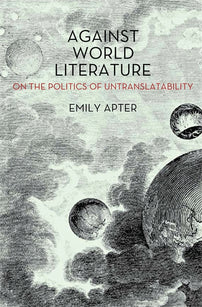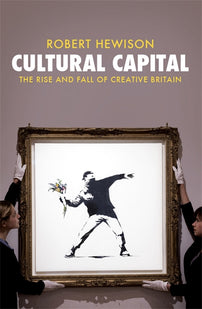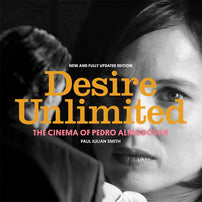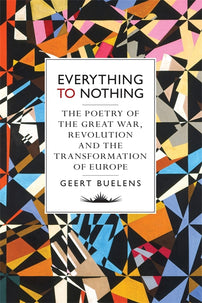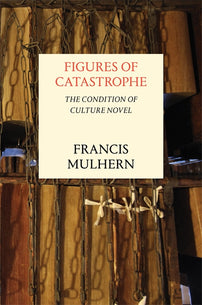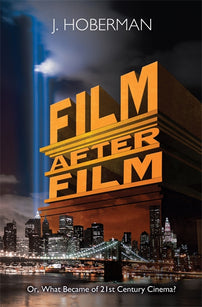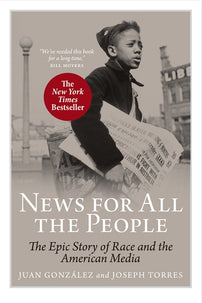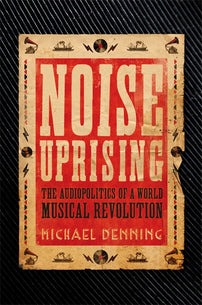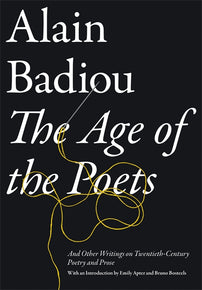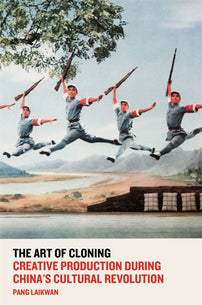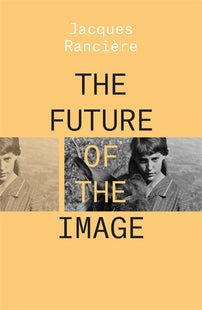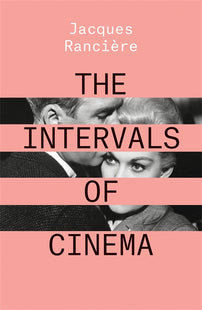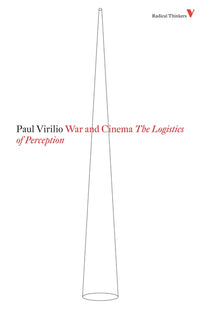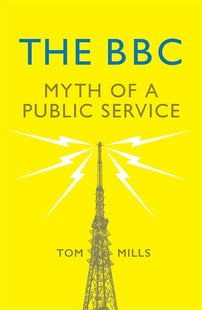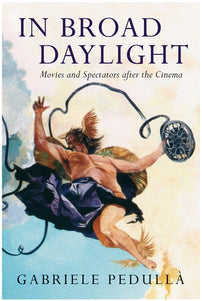Media and Culture: Verso Student Reading
Our selected media and culture reading for the academic year.

If you're looking for a radical bent to your media and culture reading, start with this list which includes a film-by-film assessment of Almodóvar's work, literary criticism from Francis Mulhern, Alain Badiou's exploration of the relation between literature and philosophy, and Annette Kuhn's look at feminist alternative cinema.
See all our student reading here.
[book-strip index="1" style="buy"]Against World Literature: On the Politics of Untranslatability argues for a rethinking of comparative literature focusing on the problems that emerge when large-scale paradigms of literary studies ignore the politics of the “Untranslatable”—the realm of those words that are continually retranslated, mistranslated, transferred from language to language, or especially resistant to substitution.
[book-strip index="2" style="buy"]Moving across literary ecologies of varying sizes, from small societies to the planet as a whole, the environments in which literary texts are produced and circulated, An Ecology of World Literature places in dialogue scholarly perspectives on ancient and modern, western and non-western texts, navigating literary study into new and uncharted territory.
[book-strip index="3" style="buy"]The legacy of Bertolt Brecht is much contested, whether by those who wish to forget or to vilify his politics, but his stature as the outstanding political playwright and poet of the twentieth century is unforgettably established in this major critical work. Fredric Jameson elegantly dissects the intricate connections between Brecht's drama and politics, demonstrating the way these combined to shape a unique and powerful influence on a profoundly troubled epoch.
[book-strip index="4" style="buy"]Through photography, Civil Imagination seeks out relations of partnership, solidarity, and sharing that come into being at the expense of sovereign powers that threaten to destroy them. Azoulay’s book sketches out a new horizon of civil living for citizens as well as subjects denied citizenship—inevitable partners in a reality they are invited to imagine anew and to reconstruct.
[book-strip index="5" style="buy"]In Cultural Capital, leading historian Robert Hewison gives an in-depth account of how creative Britain lost its way. From Cool Britannia and the Millennium Dome to the Olympics and beyond, he shows how culture became a commodity, and how target-obsessed managerialism stifled creativity. In response to the failures of New Labour and the austerity measures of the Coalition government, Hewison argues for a new relationship between politics and the arts.
[book-strip index="6" style="buy"]Desire Unlimited is the classic film-by-film assessment of Almodóvar's oeuvre, now updated to include his most recent work. Still the only study of its kind in English, it vigorously confirms its original argument that beneath Almodóvar's genius for comedy and visual pleasure lies a filmmaker whose work deserves to be taken with the utmost seriousness.
[book-strip index="7" style="buy"]In this cultural history of the First World War, the conflict is seen from the point of view of poets and writers from all over Europe, including Rupert Brooke, Anna Akhmatova, Guillaume Apollinaire, Gabriele D’Annunzio, Vladimir Mayakovsky, Rainer Maria Rilke and Siegfried Sassoon.
[book-strip index="8" style="buy"]The leading critic Francis Mulhern uncovers a hidden history in the fiction of the past century, identifying a central new genre: the condition of culture novel. Reading across and against the grain of received patterns of literary association, tracing a line from Hardy and Forster, through Woolf, Waugh and Bowen, to Barstow, Fowles, Rendell, Naipaul, Amis, Kureishi and Smith, he elucidates the recurring topics and narrative logics of the genre, showing how culture emerges as a special ground of social conflict, above all between classes.
[book-strip index="9" style="buy"]One of the world's most erudite and entertaining film critics on the state of cinema in the post-digital—and post-9/11—age. This witty and allusive book, in the style of classic film theorists/critics like André Bazin and Siegfried Kracauer, includes considerations of global cinema's most important figures and films, from Lars von Trier and Jia Zhangke to WALL-E, Avatar and Inception.
[book-strip index="10" style="buy"]This acclaimed book—called a “masterpiece” by the esteemed scholar Robert W. McChesney and chosen as one of 2011's best books by the Progressive—reveals how racial segregation distorted the information Americans have received, even as it depicts the struggle of Black, Latino, Asian, and Native American journalists who fought to create a vibrant yet little-known alternative, democratic press.
[book-strip index="11" style="buy"]Noise Uprising brings to life the moment and sounds of a cultural revolution. Between the development of electrical recording in 1925 and the outset of the Great Depression in the early 1930s, the soundscape of modern times unfolded in a series of obscure recording sessions, as hundreds of unknown musicians entered makeshift studios to record the melodies and rhythms of urban streets and dancehalls.
[book-strip index="12" style="buy"]The Age of the Poets revisits the age-old problem of the relation between literature and philosophy, arguing against both Plato and Heidegger’s famous arguments. Badiou offers an illuminating set of readings of contemporary French prose writers, giving us fascinating insights into the theory of the novel while also accounting for the specific position of literature between science and ideology.
[book-strip index="13" style="buy"]In The Art of Cloning, Pang Laikwan examines the Cultural Revolution, when ordinary citizens read widely, traveled extensively through the country, and engaged in a range of cultural and artistic activities. The freedom they experienced, argues Pang, differs from the freedom, under Western capitalism, to express individuality through a range of consumer products. But it was far from boring and was possessed of its own kind of diversity.
[book-strip index="14" style="buy"]In The Future of the Image, Jacques Rancière develops a fascinating new concept of the image in contemporary art, showing how art and politics have always been intrinsically intertwined. Covering a range of art movements, filmmakers such as Godard and Bresson, and thinkers such as Foucault, Deleuze, Adorno, Barthes, Lyotard and Greenberg, Rancière shows that contemporary theorists of the image are suffering from religious tendencies.
[book-strip index="15" style="buy"]Cinema, like language, can be said to exist as a system of differences. In his latest book, acclaimed philosopher Jacques Rancière looks at cinematic art in comparison to its corollary forms in literature and theatre. From literature, he argues, cinema takes its narrative conventions, while at the same time effacing literature’s images and philosophy; and film rejects theatre, while also fulfilling theatre’s dream.
[book-strip index="16" style="buy"]Reveals the convergence of perception and destruction in the parallel technologies of warfare and cinema.
[book-strip index="17" style="buy"]In this singular book written during World War Two, Bertolt Brecht presents a devastating visual and lyrical attack on war under modern capitalism. He takes photographs from newspapers and popular magazines, and adds short lapidary verses to each in a unique attempt to understand the truth of war using mass media.
[book-strip index="18" style="buy"]The thesis proposed by Annette Kuhn is an exciting one: namely, that feminism and cinema, taken together, could provide the basis for new forms of expression, providing the opportunity for a truly feminist alternative cinema in terms of film language, of reading that language and of representing the world.
[book-strip index="19" style="buy"]The BBC is one of the most important institutions in Britain; it is also one of the most misunderstood. Despite its claim to be independent and impartial, and the constant accusations of a liberal bias, the BBC has always sided with the elite. As Tom Mills demonstrates, we are only getting the news that the Establishment wants aired in public.
[book-strip index="20" style="buy"]In Broad Daylight investigates one of the decisive shifts in the history of Western aesthetics, exploring the metamorphosis of films in the age of individual media, when the public is increasingly free but also increasingly resistant to the emotive force of the pictures flashing around us.
**********
All the books above are 50% off until Friday, September 15 at 23.59 (PST), as part of our Back to School/Back to University sale. See all the books included in the sale via our subject-curated reading lists here.
